
Top stories






More news


ESG & Sustainability
Redisa calls on govt to fix South Africa’s “broken” waste management system



























The main idea is this: there is great scientific power in our mistakes and, in fact, error is the impetus of scientific progress and our impulse towards a deeper engagement with our universe. In my previous article, I used the example of colour by moonlight. For the SAIP presentation I used an assignment from Professor Meera Chandreskhar’s education workshop at UWC in Cape Town.
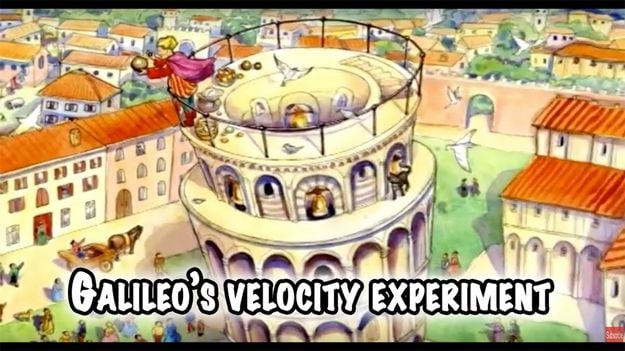
Imagine you are a grade 10 learner and you are asked to use materials commonly available in a science lab to design your own experiment to determine the relationship between an object’s heaviness and the amount of force it exerts. Looks simple enough, right? Meera tried this with several groups of young learners. Some used balances and spring scales and designed something workable. But other groups designed an experiment which could never work, something like: as this large iron ball exerts more force than this tiny ball bearing, it will fall faster when dropped. We will use the difference in time of fall to determine the difference in force exerted. In that split second of thudding failure, as the two objects hit the ground simultaneously, those misguided groups leapt forward through hundreds of years of science, from an ancient Aristotelian view to the more modern Newtonian world.
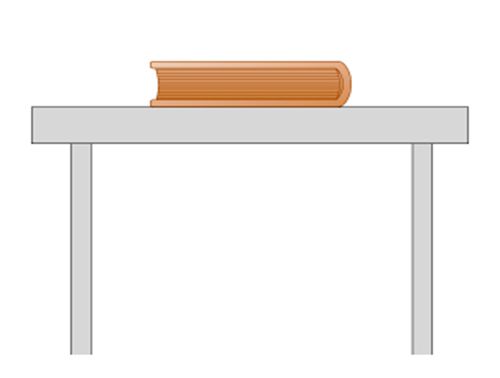
Do you see the point? It was the worst experiment which contained the most scientific power, because the learners had to ask: why, darn it? Why doesn’t this work? In a related activity, the young learners were asked to describe the forces related to a book on a table in front of them. Most said there was no force present, because the book was not doing anything. But then a facilitator gently nudged the book off the table and, as it thumped, she asked them to consider how some forces could be counteracting one another, present but balanced. Another split second of tumbling through centuries of scientific progress, arriving at the concept of forces in equilibrium.
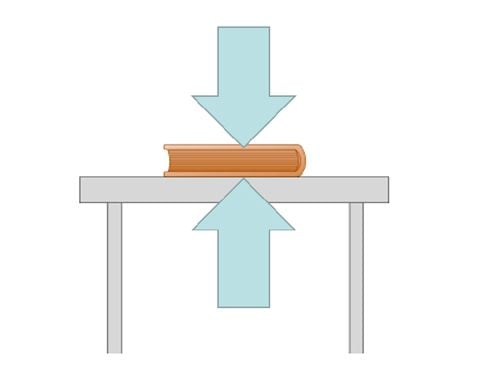
But what of my own experiment for SAIP2019. Thing is: I have a 16-year old in my house, and I realised if my Yasi were to consider Meera’s scenario of a book on a table, her first serious question would actually be: what’s a book?

Most young learners today get the bulk of their info from an electronic device, and these devices can actually give us their own perspective on our assignment. Tablets and smartphones have built in ‘accelerometers’ (acceleration sensors), to detect orientation and gesture, so an app like PASCO’S Sparkvue can let our 21st-century book speak for itself.
Now, when you place a tablet on a table, it says this about itself:
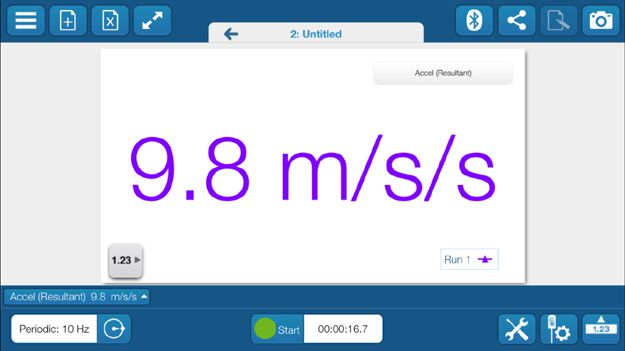
To be clear: this ipad is stationary on the table, doing nothing. But if you ask its accelerometer what’s going on, it tells you that its busy accelerating at 9.8 metres per second, each second. Why? Is this some electronic fantasy, like a learner stuck in class, dreaming about Lamborghinis? Well, let’s see what happens if it actually does move. If you nudge the device off the table, here’s what it says:
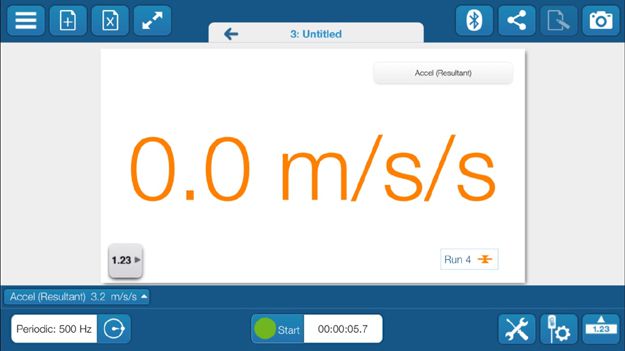
Ok, so now that it is falling and obviously speeding up, it says 0 acceleration. If you put this all together on a Sparkvue graph display, this is what you get for the whole experiment:

So, according to your tablet, it is accelerating while on the table, but not when it is falling. Then when it is flat on the ground, it is suddenly accelerating again at the same rate as on the table. If this feels completely the wrong way round to you (as it does to me) it is because you are thinking like Newton and your tablet is thinking like Einstein.
According to Einstein, gravity as experienced by you and your ipad, is not so much a Newtonian apple grabbing force, but the effect of an acceleration, in this case the acceleration that constantly prevents you from free-falling towards the centre of the earth. (If you were in outer-space on a rocket accelerating at 10 m/s/s it would feel just like the Earth’s gravity.) For Newton, the rest or 0 state is your book motionless on the table. But for Einstein, the rest state is actually the free-fall, when the book cannot feel its own weight – the state we now call 0 gravity. This is our modern day understanding of gravity, which Einstein developed with extraordinary power and accuracy, and radically transformed our understanding of the universe.
Right, so we have now tumbled through science all the way from Aristotle to Einstein, with an iron ball, a ball bearing, a book, and finally an ipad, each time passing through various levels of confusion and precision, with better and more powerful results. Have we arrived? Not at all. Einstein’s extraordinary insight on gravity transformed our conception of the universe, but it also tantalisingly revealed states of existence which it couldn’t mathematically describe, like the centre of a black hole, or the beginning of our universe. It is like the Roman poet Virgil in Dante’s Divine Comedy – he could show us that there is such a thing as Christian paradise and where to find it, but he lacked the concepts or the language to go inside. For me, this is not so much frustrating as inspiring. I get it now that a certain amount of being wrong is a part of our condition (we see as in a glass, darkly). But it is also our spur to keep on learning and experimenting. All of which should help us with our prideful attitude. As one delegate indicated at the end of my presentation: unless you have made peace with being wrong, you will never take that step towards being right.
You can download the free Sparkvue App from PASCO Scientific at Apple App Store or Googleplay. Chat to me about matters educational: az..oc.trep@retep.